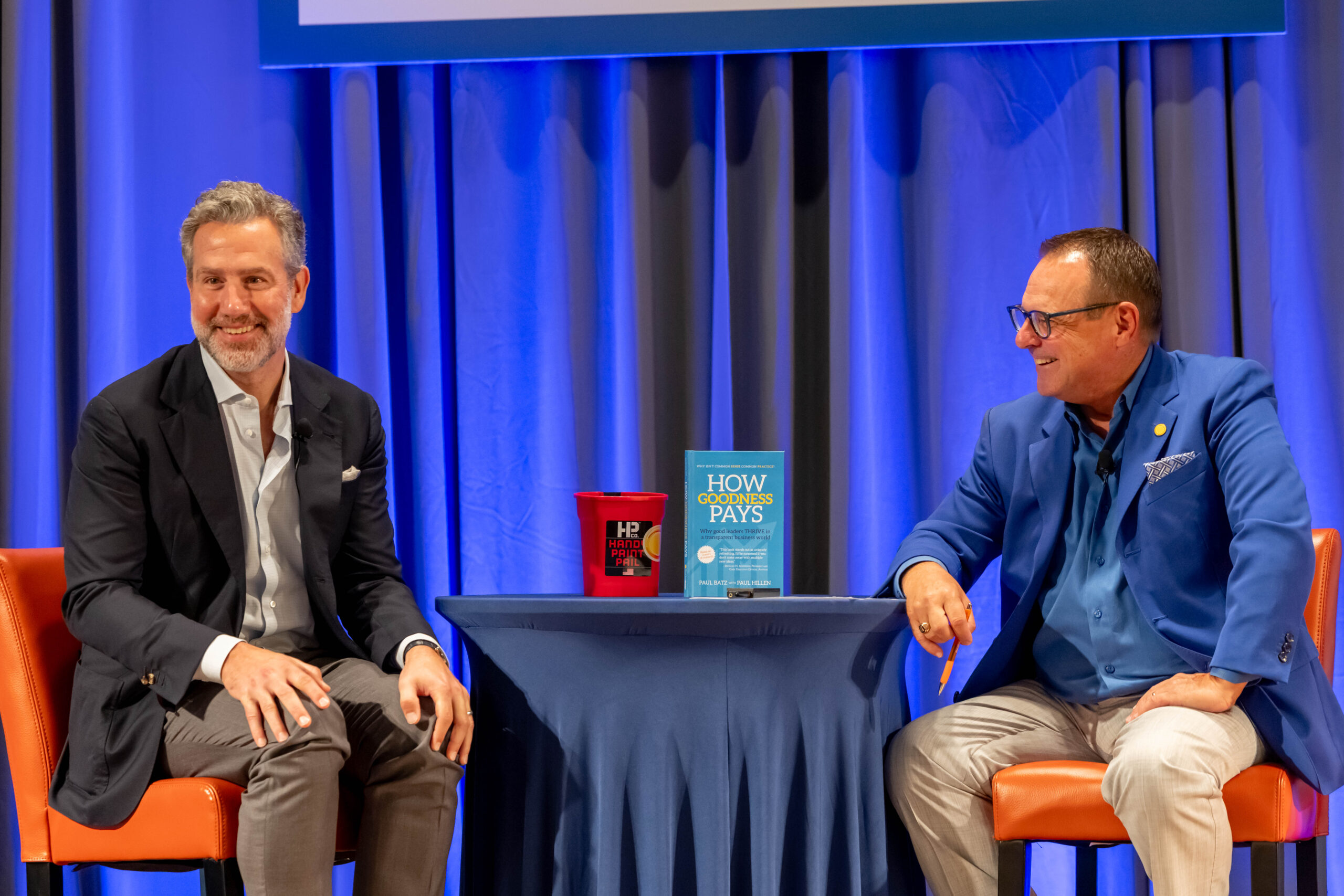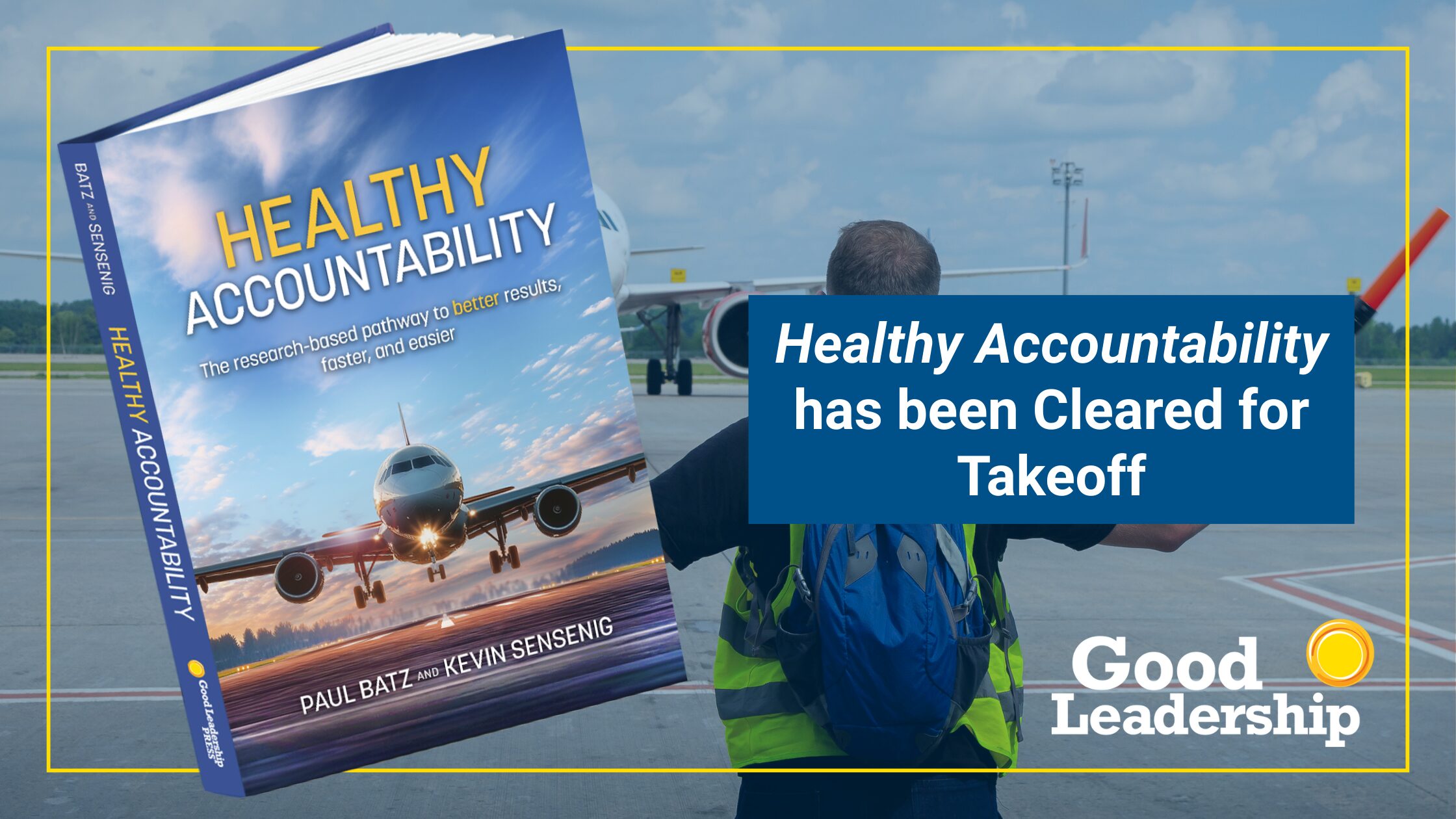

How to help tired employees who are losing their resilience
Paul Batz

Fear has a lot to do with feeling alone and believing nothing is going to change. Fear reduces resilience. That is relevant today, because pandemic related isolation is on the rise as daylight wanes. This has many leaders openly worried about the resilience of their teams. From the American Psychological Association: resilience is defined as the ability to adapt well in the face of adversity, trauma, tragedy, threats, or significant sources of stress. Major sources that reduce resilience are serious health problems, or workplace isolation and financial stress. Resilience involves the ability to bounce back from sudden and repeated set-backs, and also can include profound personal growth.
Following is a blog post with insight that can be immediately applied to help leaders help employees who are tired, and whose resilience is waning.
No one is immune
Somewhere after the events of 9/11 in 2001, a small group of leaders met with the purpose of helping one another succeed both personally and professionally. They were slightly scared, and feeling alone. They called themselves the Personal Accountability Group.
As a new partner in a professional services firm, I was the instigator of the group, recruiting three other men and one woman. These were four people I admired – role models for who I wanted to be when I grew up. My friendship with Tim Schmidt turned out to be the most impactful on my life and leadership – the two of us invented The Seven Fs as a framework to keep the Personal Accountability Group discussions positive and focused on personal growth. Peer coaching around faith, family, finances, fitness, friends, fun, and future was effective because we discovered together how a routine of intellectually-honest self-assessment on each of these concepts is healthy and energizing. We found when individual leaders discuss their Seven Fs with others the discussion creates new-found courage, resilience, and hope in the face of the inherent difficulties of leadership.
You never know when you will need a boost

Then came the Great Recession. As the financial markets melted down, business leaders were reeling in self-doubt. As an executive coach, I saw first-hand how seemingly strong and fearless people back-pedaled as sales dropped and jobs vanished. In short, leaders – including me – felt like our souls were bruised and our energy was nearly gone. In that lowest point, I received a phone call from my 103-year old grandmother who on her death bed shared this message: “You are a good man, and the world needs men like you to spread goodness.”
From that conversation, my attention shifted to a personal mission to use my own understanding of “goodness” and the Seven Fs as a source of strength, courage and inspiration to live out my grandmother’s directive. I quit my job and started Good Leadership – with a mission to spread goodness, because goodness pays. The messages of “goodness” and “The Seven Fs” were bright and attractive in the darkness of a failing economy. What I discovered in my coaching with the Seven Fs is how that tool brings to life what the Ancient Chinese and the Egyptians discovered more than 4000 years ago: The best leaders had a strong connection of mind, body, and spirit.
Relevant again today
The momentum in the Great Recession days came from asking tired leaders: “Where do you see the goodness around you today?” Their answers helped them find gratitude, positivity, and an attitude more focused on investing in the well-being of others. People who embraced the Seven Fs were self-reporting better resilience and growth in their individual perception as leaders.
Then came COVID…
Why does goodness matter during a global pandemic?
Goodness is when people thrive together in a culture of encouragement, accountability and positive teamwork. For goodness to be possible at work, we as leaders need to make sure our lives are in a good place. We need to have hope, resilience, and positive momentum on our faith, family, finances, fitness, friends, fun, and future to help others have the same.
What we’ve learned from other difficult moments in history is that people will endure significant struggles if they believe the struggle is helping them develop into the person/leader they want to be when they grow up. A leader who behaves like a coach helps keep the aspirational goals alive in others, and connects the dots to how this particular struggle can also be positive development.
Two simple tools are effective in creating positive momentum and increasing resilience in leaders: 1) The Seven Fs Insight Tool 2) The Good Leadership Benchmark. Request the tools here.
Realism before positivity creates credibility
Motivated to jump in and help improve resilience, one CEO asked me recently: “If I know the people on our teams are really tired and losing hope, does it make sense for me to acknowledge it, even if I don’t have a plan to address it?” The answer is “yes.”
Research since February 2020 shows employees trust leaders the most who speak to the current and obvious realities before they share too much positive energy. The media is so full of dark noise and inconsistent social commentary that employees just want their leaders to speak clearly, and state the naked truth. So, it’s a good idea to acknowledge when you see:
- the fatigue related to heavy pandemic workloads and forced new work styles
- the uncertainties about virus protocols and vaccines
- the burdens of home-school routines
- the darkness of winter that drains our already depleted energy
Realism shared by leaders gives credibility because employees feel validated, knowing leaders see their struggles. Accurately acknowledging what others see creates sincerity, a valuable step to helping individuals feel valued.
Improve resilience with coaching skills

Broad communication won’t actually build resilience. That takes one-on-one investments. That requires leaders to become better coaches. Resilience rises when individuals feel the investment of a caring person, whose coaching energy is one-on-one. Coaching skills help employees help themselves by creating self-motivating insights that motivate new thought patterns and behaviors. Just like in the Personal Accountability Group mentioned earlier in this article, leaders can use the Seven Fs Wheel to create a sincere connection with employees, and stimulate personal insights on each of the Seven Fs: faith, family, finances, fitness, friends, fun, and future.
So, now let me state the obvious: Organizational leaders are besieged with challenging issues today by the economy, virus, social justice concerns, and shareholders who expect consistently positive financial performance. Those issues require time and energy. How do leaders make the time for more one-on-one coaching?
The answer lies in trade-off thinking: Nothing significant ever happens by any one leader alone. We need to build a team of people who are aligned, committed, and embracing accountability to create great results. If the people around you are tired and losing their will to succeed, they need YOU to help them get back on track.
Here’s a simple scenario to help you see how your coaching time could look:
Leader in a closed-door, one-on-one meeting: You and I have talked about how the people around us are getting tired. Here’s a tool that has really helped me – you can rate each of these seven concepts [The Seven Fs] 1 (low) and 10 (high) for how you feeling about each of The Seven Fs right now in your life. By connecting the dots on the Seven Fs Wheel, you can see a picture of your life in the moment. I want to help you create positive momentum in each one of these areas so you like the picture better, and we can both thrive together – inside and outside of work.
The coaching question: “What will it take to make your Seven Fs Wheel roll?” has consistently provided valuable insight and inspirational energy for self-development. Especially when a peer or a leader is asking the question, with the sincere intention of helping.
Strategies for moving forward
After writing the book on the Seven Fs called What Really Works, readers began asking the question: What strategies do leaders with really high scores on the Seven Fs use to live resilient, happy, and fulfilling lives? Backtracking on the qualitative and quantitative research for the book, the Good Leadership coaches identified seven strategies. Each of these strategies is simple. When combined they provide a timeless and powerful developmental roadmap for improving resilience, courage, and a hopeful outlook.
- A personal mission statement that motivates and inspires me.
- A plan with clear personal and professional goals for the next three years
- Using my calendar effectively to ensure time for the most important things in my life
- Regular time for meditation or reflection to stay in tune with my sense of direction
- Reliable group of people who support me and help me be accountable for my goals and aspirations
- Effectively blending together my work life and home life
- Mentoring someone in ways that are satisfying for me
The Good Leadership Benchmark tool encourages forward-thinking discussion around customized strategies and tailored goal setting around individual needs. Positive momentum improves when individuals see and feel the direct support of their leader by way of a customized development plan, where progress can be celebrated daily.
Summary
Many leaders are worried about employees whose resilience may be waning by pandemic-related isolation and heavy workloads. It’s a good idea for leaders to publicly acknowledge the difficulties in ways that are sincere and realistic, before trying to spread cheerful positivity.
The support of a sincere, empathetic human being is effective in increasing the resilience of employees. This cannot be done with a newsletter or a group webinar. It requires leaders to apply their skills as coaches, who can help individuals create insights around self-care and build plans that are self-motivating. Two Good Leadership tools stimulate effective coaching conversations: The Seven Fs Insight Tool, and the Good Leadership Benchmark. You can get those tools free here.



